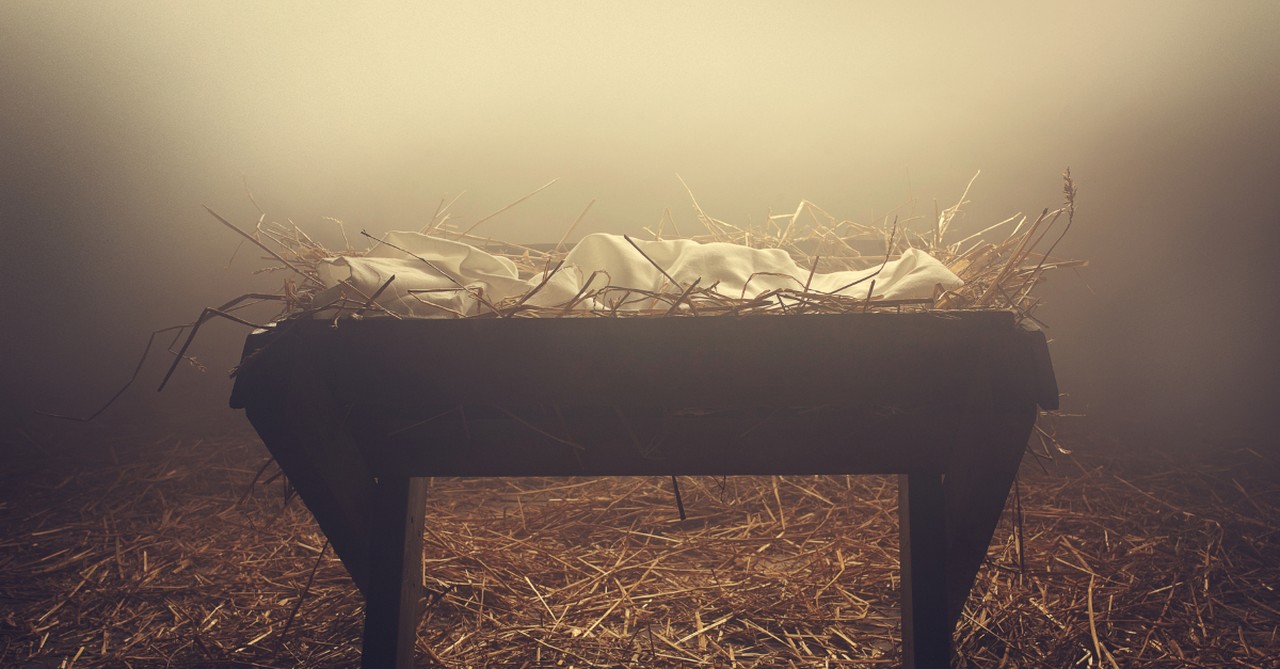3 Hymns That Aren't Theologically Sound

It’s a great comfort to know a beloved hymn we enjoy singing is theologically sound. Recently, I shared about five hymns (both old and modern) with lyrics pulled straight from Scripture, and it’s clear there are far more than just five. Some quote whole sections of the Bible verbatim, while other have just a line or two.
A hymn — the word comes from the Greek hymnos, meaning “song of praise” — is a religious song or poem of worship to God. The earliest Christian hymn still preserved is from the third-century, and hymns are still written today (we might also call a modern hymn a “contemporary Christian worship song”).
But there are hymns that aren’t theologically sound. And while the songs might be beautiful in their message, music, or the God-inspired imagery they evoke — even bringing us great comfort — they lift up ideas that aren’t promised in the Bible.
It’s not a bad thing to appreciate something that’s not in the Bible. After all, the Bible doesn’t mention every single thing in existence. Certainly, the internet is found nowhere in the Bible, yet millions of Christians worldwide deepen their faith every day because of the connectivity and wider access to knowledge it has introduced.
Yet sometimes, we sing our heart out to the Lord in worship, believing what we think is a truth about Jesus or the nature of God, but it turns out this so-called truth is nowhere in the Bible.
These hymns aren’t necessarily bad or evil, but it is important to know they aren’t accurate from a theological standpoint.
Let’s take a look at three hymns that aren’t theologically sound:
Photo credit: Unsplash/Matthias Wagner
1. America the Beautiful (and Other Patriotic Hymns)

1. America the Beautiful (and Other Patriotic Hymns)
SLIDE 1 OF 3
Please don’t get me wrong. I am an American and I love the United States of America. However, hymns are supposed to be songs of praise to God — not to praise or glorify a nation. Singing a song that praises a beautiful nation in a service designed to worship God can be a questionable thing for many Christian believers.
“America the Beautiful” was penned by Katharine Lee Bates in 1893. It’s popular at ballgames and festivals, and it is also included in hymnals alongside songs that praise our Heavenly Father.
Bates, a professor, wrote that she penned the song after a trip to Pike’s Peak in Colorado, inspired by the vast beauty of the landscape. She was also inspired by a train trip she took en route to teach at Colorado College, a trip that also took her through the wheat fields of Kansas. It was a poem written to express love for America, not to be a hymn, though it was turned into a hymn.
The song lifts up the spacious skies and mountain majesties of the scenery, the selfless love of the nation’s heroes for their country, and the alabaster cities that even tears cannot dim.
“America! America! God shed his grace on thee, and crown thy good with brotherhood from sea to shining sea,” the song proclaims.
It’s a beautiful thought about someone’s love for their nation, and it does mention God, asking God to watch over the country and keep it safe. But obviously, America wasn’t even a country when the Bible was written. And as great as any earthly nation might be, the Bible expressly tells us in Philippians 3:20-21, “But our citizenship is in heaven. And we eagerly await a Savior from there, the Lord Jesus Christ.”
Patriotic hymns like “America the Beautiful” or hymns that lift up any nation as their primary focus are not theologically sound.
Photo credit: Unsplash/Aaron Burden
2. “The Little Brown Church” (and Other Church-Centric Hymns)

2. “The Little Brown Church” (and Other Church-Centric Hymns)
SLIDE 2 OF 3
Also known as “The Church in the Wildwood,” this is a sweet, evocative song that praises a sanctuary in a picturesque place nestled within a wooded valley.
The song was written in the mid-19th century by the Puritan music schoolteacher William Savage Pitts. Pitts reportedly was traveling to visit his fiancée when he came across the valley near Bradford, Iowa, and envisioned a church in that spot. The vision was so inspiring that Pitts penned the song. Years later, he was surprised when he journeyed by the spot again and discovered a church was indeed being built in that spot.
The song lifts up a little brown church situated in a lovely spot in the dale surrounded by blooming wildflowers as a clear-ringing bell calls worshippers inside.
“Come to the church in the wildwood, oh, come to the church in the vale; No spot is so dear to my childhood, as the little brown church in the vale,” the song proclaims.
I love this song, truly. It reminds me of the simple joys in life, and its sentimental reflection of a place dear to one’s childhood makes me remember how important church is in my life.
However, as sweet and evocative as the song is, at its core the song is about a building situated in a lovely spot in the woods, and there is no theological soundness to this.
In the Bible, God didn’t tell us to construct buildings. He told us to start a Church. A church is not a place but a people. In the Bible, the Greek word used for “church” is ekklēsia, which refers to the people of God. God’s church is often called “the body” (1 Corinthians 12:12-27) or “the bride” (Ephesians 5:24).
The nostalgic bent of the song is heartwarming, and I (like many!) enjoy singing it. But as a hymn, it is not theologically sound. It doesn’t further the gospel in the least.
Photo credit: ©Getty Images/Johnathan Kana
3. Away in a Manger

3. Away in a Manger
SLIDE 3 OF 3
Like many of us, I love thinking about Jesus as a baby. Perhaps it’s because I’m a mother, or because I was a baby once myself – as we all were! Thinking about an infant Christ and the conditions of his birth reminds me of the miracle of his unique God-Man nature, he who was “Word became flesh” (John 1:14). I love Advent and the stories of Christ’s miraculous conception and birth, and I love celebrating Christmas and the birth of our savior.
However, while some Christmas/Advent songs are biblical and rooted in good theology, others are inaccurate — such as “Away in a Manger.”
The biblical account of Jesus’ birth is shared in the Gospel of Luke. As we’re told, Jesus’ mother, Mary, and her husband, Joseph were in Bethlehem for the census when it came time for her to give birth. As there was no available guest room, Mary “wrapped him in cloths and placed him in a manger” (Luke 2:7).
However, the song waxes poetic about fictional details contained nowhere in Scripture. A manger is an animal’s food trough, and it’s typically kept in a stable, barn, or other place where animals might be kept. But the romantic details of the song aren’t mentioned in the Bible. For example, it talks about how “the stars in the heavens looked down where He lay, the little Lord Jesus asleep on the hay.” We have no idea if the manger was outside in open air or not, nor do we know if he was placed in hay. All we know from the Bible is Mary wrapped him in “cloths” and laid him in a manger.
The song continues, “The cattle are lowing, the Baby awakes, but little Lord Jesus, no crying He makes.” Nowhere does the Bible tell us Jesus didn’t cry as an infant, though we do know that as a man, “Jesus wept” (John 11:35). It’s absolutely inaccurate to imply Jesus — who was fully God and man — didn’t cry or do any other things a typical infant might do, including require milk from his mother.
As much as the song sparks my imagination about the birth of my savior, and I love singing it at Christmastime, as a hymn, it is inaccurate and, therefore, not theologically sound.
There are a ton of hymns old and new that contain theologically inaccurate lyrics and concepts, and many of us enjoy singing these songs. Let’s just remember that it’s still fine to enjoy these songs even as we are aware they don’t hit the mark when it comes to biblical accuracy.
Now click here to read 5 Hymns with Lyrics Pulled Straight from Scripture
Photo credit: ©Getty Images/kevron2001

Originally published August 14, 2024.









